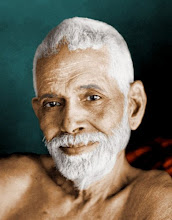Yesterday, I posted my recent response to an e-mail forwarded to me that disparaged opposition to state-sponsored prayer in public government and school functions. I also received the following e-mail originating from the same person with similarly strident things to say about calling December 25 anything other than “Christmas” and its associated trees anything other than “Christmas Trees”:
This is a CHRISTMAS TREE.
It is not a Hanukkah bush,
it is not an Allah plant,
it is not a Holiday hedge.
it is not a Holiday tree
It is a CHRISTMAS TREE.
Say it... CHRISTmas, CHRISTmas, CHRISTmas
Yes.... CHRISTmas - celebrating the Birth of Jesus Christ!!!!
LET'S KEEP CHRIST IN CHRISTMAS
For some reason, I felt compelled to respond to this message as well, and so I asked its author why he cared what others called these trees so long as he and his family could go on calling them “Christmas trees.” He replied:
The origination of the Christmas tree is the issue.
In this world of gray that we now live in, where one chooses to keep certain issues black and white, certain people stand for other issues that they keep black and white.
So in keeping with the issues that are important to my family and I, I simply want the Christmas tree left to it's origination of being centered on Christ therefore we have the Christmas tree. It goes back to the Babylonian pagan rituals where a yule log was burned and then a full tree was placed in the house after. You in essence had a rebirth with the full tree. However when Rome was converted to Christianity the church fathers converted the Saturnalia Winter Solstice celebration to the birth of our Saviour, The Lord Jesus Christ and adopted many of the old rituals and symbols i.e. the Christmas tree.
To which I replied:
I understand that YOU want to call these trees "Christmas trees." But why do you care what other people call them? Perhaps more to the point, Why do you want to impose your idea of what they should be called on others? Why not practice the same tolerance of non-Christian viewpoints that you presumably expect non-Christians to accord Christian ones such as yours? And why not acknowledge that just as the Babylonian pagan tree became, as you explained, the "Christmas Tree" for Christians of the Roman Empire and afterward, it can become a more inclusive "Holiday Tree" in today's pluralistic world? Why can't Christians respect the fact that different people want to call it different things and accept formal or informal public policy that calls it a generic "Holiday" tree in state and commercial functions but allows private individuals and their families to call it whatever they wish?
To which he replied:
Well I suppose that if I was into relativism as you seem to direct, I would. You know reading your response brings us full circle back to paganism. I choose to keep the tradition of 80 % of Americans. If you are celebrating Kwanza you do not buy a tree. If you celebrate Hanukkah you do not buy a tree. So why would one need a holiday tree to begin with? As for me and my house we will serve the Lord!
To which I replied:
With all due respect, it doesn't seem to me that you’ve really answered my questions about why you care what other people call the tree when you and your family have the right to go on calling it whatever you wish. Not that you're under any obligation to answer me if you'd rather not or you can't.
And I don't understand why you would have to be into "relativism" to be tolerant of other people's opposing opinions, feelings, and desires regarding this matter. Why couldn't you believe that your faith embodies absolute theological truth while, at the same time, granting everyone else the freedom to believe as they do and not to have the government and businesses assail them with "Christmas trees" and "Merry Christmas"?
I don't have a tree. But if someone does have one and calls it a "Holiday tree," I have no problem with that. I also have no problem with government and businesses calling it a "Holiday tree" and calling the season a "Holiday" season in deference to non-Christians. You and your family can still call the tree and the occasion anything you want. What is wrong with that?
To which he replied:
I think the answer to " why do you care" is that the message of the Christmas tree is the time we celebrate Jesus's birthday. It ultimately brings one back to the Cross and Jesus dying for your and my sins. I care because as a christian, Jesus told us to be the salt of the earth and salt is the compound that preserves. Salt, back then, was rubbed onto meat to keep it from being spoiled. So I hope you can see the importance of what my responsibility is. I simply will remind people of God's great love for them by sending His Son to die for them so they can go to heaven. You see it is all tied together, Jesus is the panacea to all lifes problems. My responsibility is to only bring this great truth to those chosen to know him as their Lord and Saviour. If after I have shared the message of the Christmas tree they decide to shine it, then that is between them and God. I am not going to care any less for them based on their decision because I am called to love not to condone. Some people are never exposed to the Gospel message ( the good news). I would be remiss not taking the oppurtunity to share with them my faith. So once again the reason I care is because Jesus cared.
And this is how I replied:
You say that you have a "responsibility" as a Christian to "remind people of God's great love." That's all well and good. But I don't understand why this necessarily entails opposing those who want to say "Happy Holidays" instead of "Merry Christmas" or "Holiday Tree" instead of "Christmas tree." You can still testify to your faith. You and your family can still say "Merry Christmas" and "Christmas tree." But I don't understand why you appear to be insisting that everyone else do the same.
You say, "Some people are never exposed to the Gospel message." However, I suspect that virtually everyone in this country has been exposed to it repeatedly, and that some would prefer not to be exposed to it any more than they have to be. So they have made it known to the government and businesses that they would prefer that these institutions and organizations respect their wishes by using more inclusive language about the upcoming holidays, and some have honored their request. I don't see anything wrong with this.
Of course, you have a right to protest and oppose it, just as others have a right to protest and oppose what you and others like you are doing. But it seems to me, for what it's worth, that if Christians spent less time and energy worrying about prayer at public functions, the teaching of evolution in our public schools, and about what businesses, government, and private individuals call trees and holidays and did a much better job of 'imitating Christ' than they seem to do now, they wouldn't need to proselytize at all. Their shining examples would bring people flocking to the faith.
As it is, their conduct--including that of scorning, as Colonel Jack Fessender does with his "Fu*k the ACLU" comment and as you seem to with your apparent embrace of it--the feelings and wishes of people who view religion and religious propriety differently than you do appears to be repulsing many people from the faith and opening up a wider and wider divide between people of differing viewpoints at a time when we all need to respect each other and work together more.
The discussion continued awhile longer. When I read it, I shake my head and wonder how we can ever hope to come together in this country to promote the common good. There just seem to be such disparities in the ways different people see the world and in the ways they reason and communicate that it sometimes appears as though we are doomed. Yet, I don’t want to succumb to cynicism. I want to keep looking for a way to dialogue with others and to see the truth in what they say while helping them to see the truth in what I say, or, at the very least, encouraging mutual respect and civility between those who can never agree on anything.



No comments:
Post a Comment